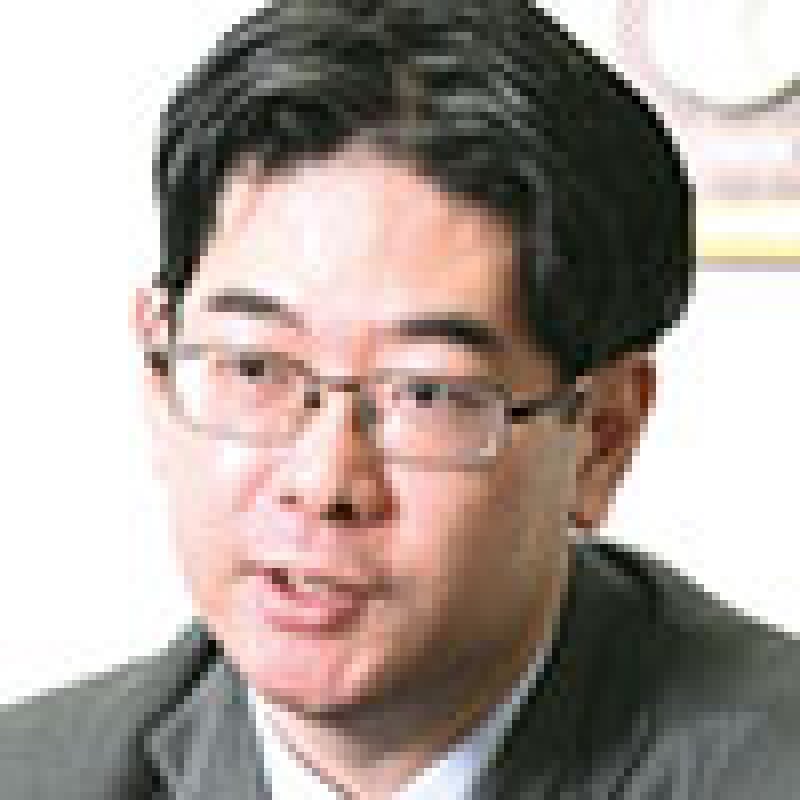t > pT
"t" is the generic drug maker's waiting period to enter the market divided by the patentee's reverse payments. "p" is the probability that the patent will be judged as valid in the lawsuit. "T" is the remaining patent term. Thus, "pT" is the expected value of remaining patent term as valid. If "t>pT" applies, reverse payments have the effect of delaying entry.
Below is an excerpt from the report Competition and Research and Development Incentives in the Pharmaceutical Market Through Examinations of the Impact of the Entry of Generic Drugs on the Market dated October 7 2015 by the Competition Policy Research Center.
(See http://www.jftc.go.jp/houdou/pressrelease/h27/oct/151007_files/151007gaiyou.pdf).
Japan Fair Trade Commission report
1. The situation of generic drugs in Japan
(1) The share of generic drugs in Japan
The share of generic drugs in the ethical drug market in Japan has been rising as a result of a number of policies to promote the use of generic drugs. Compared with Western countries, however, the share remains at a lower level (for example, 49% in Japan, 92% in the US and 83% in Germany between October 2013 and September 2014).
(2) Systems characteristic of the ethical drug market in Japan
a. Price regulation system
The retail prices of drugs are determined by the state. Under the price regulation system, the public prices of generic drugs when they are newly introduced to the market are, in principle, 60% of the public prices of original drugs. The prices will then be changed on a regular basis in light of prevailing market prices (wholesale prices set freely by manufacturers for medical institutions and other organisations). Unlike in the EU and US, direct price competition in the consumer (patient) market does not seem to play a part.
b. Patent linkage and ex-ante coordination
When it comes to issues related to patent infringement committed by generic drugs, it is regarded as a precondition in the EU and the US to resolve the issues through patent infringement suits that are filed by the manufacturers of original drugs against the manufacturers of generic drugs. In Japan, on the other hand, if the patent for the active ingredients of original drugs remains valid, approval for the manufacture and sale of generic drugs will not be granted (this is termed patent linkage). In addition, the manufacturers of original drugs and the manufacturers of generic drugs examine possible patent issues between the original drugs and the generic drugs, and then they report the results to the government (the Ministry of Health, Labour and Welfare, ex-ante coordination).
(3) Economic analysis related to the market structure
Unlike in the US, in Japan, price competition between original drugs and generic drugs is limited even after the market entry of generic drugs, compared with price competition among generic drugs. However, if the share of generic drugs exceeds a certain level, it is possible in the future that the prices of original drugs will also fall to a similar extent to the fall in the prices of generic drugs as a result of pressure from competition.
2. Situation in the EU and the US
(1) Trends of prices
In general, after the entry of generic drugs, in line with their prices, the prices of original drugs also fall significantly.
(2) Existence of activities that may have any impact on competition law (reverse payments)
In the EU and the US, the manufacturers of original drugs sometimes file patent infringement suits against the manufacturers of generic drugs, even after the expiry of key patents related to original drugs, such as the active ingredients, on the grounds of the continued existence of other related patents and other factors. In such suits, there are cases where, at the point of the settlement, the manufacturers of original drugs make large payments to the manufacturers of generic drugs (which is termed reverse payments). These cases are considered to be anti-competitive practices to delay the market entry of generic drugs.
3. Implication for Japan
Under the current system and market structure in Japan, it is believed that Japan is in an environment in which reverse payments, which potentially can become a competition issue as in the EU and the US, are less likely to take place. However, if the share of generic drugs continues to grow and the pressure of the competition from generic drugs increases, incentives for engaging in reverse payments may increase in the same manner as in the EU and the US in the future. For this reason, it is necessary for the Japan Fair Trade Commission (JFTC) to carry out monitoring as needed and ensure that the Anti-Monopoly Act is actively applied to such cases.
Practical tips
In Japan, no competition law cases where reverse payments (pay for delay) became a direct issue exist and the discussion amongst academics has not yet started fully. Professor Odagiri pointed out the following reasons why actual reverse payments cases do not arise in Japan: 1) the abbreviated new drug application's (ANDA) 180-day exclusivity to be enjoyed by the first filer does not exist, 2) even successfully delaying the first filer's entry, cannot delay the entry of others, 3) drug price reduction by a generic's entry is not as severe as in the US, 4) unlike ANDA's paragraph IV filing, patent linkage requires no infringement of the product patent/use patent.
The JFTC has a strong interest in reverse payments and planning to actively apply the Anti-Monopoly Act. Indeed, the JFTC unofficially interviewed several pharmaceutical companies regarding reverse payments. Around four years have passed since this report was issued. There will be close to an 80% share of generic drugs by September 2020 and as this report pointed out, incentives for engaging in reverse payments may increase and an actual case may arise. If reverse payments arise, it is essential to review whether there is an issue under the Anti-Monopoly Act. Attention should be paid to how Japan-specific factors, in comparison with the US and Europe, influence the decision.

|
Takanori Abe |
ABE & Partners
Matsushita IMP Building
1-3-7, Shiromi, Chuo-ku, Osaka, 540-0001, Japan
Tel: +81 6 6949 1496
Fax: +81 6 6949 1487










